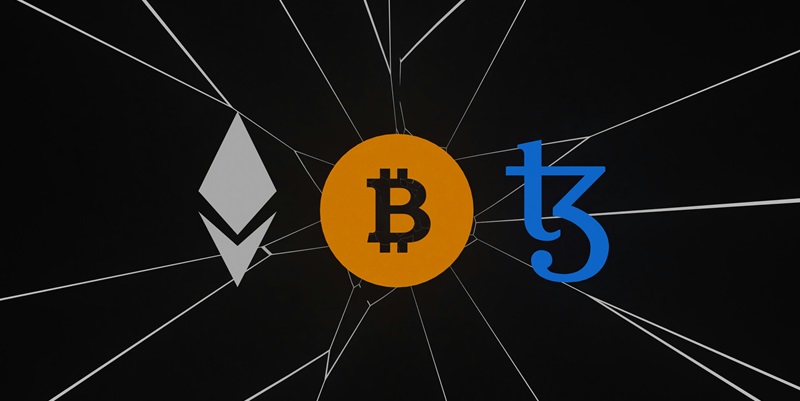In an era where the cryptocurrency market continues to expand and evolve, the European Union (EU) has introduced a new set of guidelines designed to regulate Crypto Asset Service Providers (CASPs) and Payment Service Providers (PSPs). These rules aim to align with the EU’s rigorous regulations, particularly focusing on areas such as sanctions and the mitigation of high-risk ventures and terrorism financing strategies. Spearheaded by the European Banking Authority (EBA), the guidelines mandate robust transfer screening systems to effectively monitor and enforce sanctions.
Strengthening Compliance and Screening
Enhanced Monitoring Tools for CASPs
The guidelines underscore the necessity for CASPs to implement comprehensive transaction monitoring tools to identify potential breaches of EU sanctions. The use of advanced technology for transaction analysis has become imperative to mitigate risks associated with illegal activities, including money laundering and terrorist financing. This initiative ensures that cryptocurrency companies adopt rigorous checks to curtail any illicit actions, reflecting the EU’s commitment to safeguarding its financial ecosystem amidst the dynamic growth of the crypto market.
To fortify the defense mechanisms against illegal activities, crypto companies are required to employ state-of-the-art screening systems capable of identifying anomalies in transactions. These systems must be continuously updated and optimized to align with the growing complexity of crypto transactions. The aim is to create a transparent and robust monitoring process that not only identifies potential violations but also provides a clear record of compliance efforts. This transparency is crucial for fostering trust among consumers and investors, ensuring that the crypto market operates within the legal frameworks set by the EU.
Accountability and Record-Keeping for PSPs
Payment Service Providers, similar to CASPs, must enhance their screening processes to prevent unauthorized transactions that could violate EU regulations. The guidelines stipulate the need for transparency and accountability, requiring PSPs to maintain detailed records of all compliance measures. By documenting these efforts, PSPs can demonstrate their adherence to regulations and exhibit a committed stance towards lawful financial operations. This meticulous record-keeping plays a pivotal role in the overall objective of reducing risks associated with financial crimes.
Transparency in operations ensures that every transaction is scrutinized and recorded, leaving no room for unauthorized activities. The need for PSPs to adapt to these stringent guidelines highlights the EU’s dedication to fostering a secure financial landscape. Maintaining detailed compliance records not only safeguards the system from potential threats but also reassures consumers and investors of adherence to legal standards. This approach underscores the importance of compliance in the broader financial context, aiming to set a high benchmark in regulatory practices for the digital asset ecosystem.
Aligning with Global Regulatory Efforts
Addressing Vulnerabilities and Building Trust
The EBA’s guidance is emblematic of the increased scrutiny and regulatory attention faced by the European crypto industry as digital asset uptake continues to grow. The new rules aim to rectify potential weaknesses within the system, protect the EU’s financial ecosystem, and foster consumer and investor trust by ensuring that crypto transactions conform to legal standards. The regulatory measures, slated for implementation on December 30, 2025, come at a critical juncture as global efforts to regulate the crypto industry amplify.
The regulations introduced by the EU are part of a broader initiative to construct a secure and well-regulated digital asset environment. By setting clear guidelines for CASPs and PSPs, the EU aspires to lead global regulatory efforts and establish a model that other regions might adopt. The regulatory framework aims to address core vulnerabilities within the system, minimizing the risks posed by the decentralized nature of cryptocurrencies. Establishing a well-defined legal structure is essential for engendering confidence in the financial system and encouraging responsible innovation within the crypto industry.
Previous Attempts and Future Implications
Earlier, the European Systemic Risk Board (ESRB) proposed measures such as limiting leveraged bets on digital assets and establishing reporting requirements for companies within the crypto sector. Concurrently, the European Securities and Markets Authority (ESMA) concluded initial rules under the Markets in Crypto Assets Regulations (MiCA), which demand specific information from CASPs seeking to operate within the EU. These rules also address procedures for handling customer complaints, further reinforcing the EU’s comprehensive regulatory stance.
Looking forward, these regulations symbolize a proactive approach in dealing with the complexities and risks associated with digital currencies. The focus on detailed transaction checks, transparency, and accountability marks a significant progression toward a secure and regulated digital economy. By setting precedent with these robust regulatory frameworks, the EU aims to mitigate risks and foster an ecosystem where digital assets can thrive under stringent legal supervision. The recent developments not only reflect past endeavors but also set the foundation for future regulatory advancements, shaping the global approach to digital asset governance.
Conclusion
In an era when the cryptocurrency market is continuously growing and changing, the European Union (EU) has introduced a new set of regulations aimed at overseeing Crypto Asset Service Providers (CASPs) and Payment Service Providers (PSPs). These guidelines seek to align with the EU’s stringent regulatory standards. A significant focus is on areas such as sanctions enforcement and the reduction of high-risk activities, including strategies to combat terrorism financing. Led by the European Banking Authority (EBA), the guidelines require the implementation of robust transfer screening systems. These systems are designed to effectively monitor transactions and enforce applicable sanctions. Additionally, these guidelines will help ensure that CASPs and PSPs operate within a framework that supports both security and compliance. The rules are a significant step towards maintaining the integrity of the financial system, preventing misuse of digital assets, and fostering a safer environment for cryptocurrency transactions.

